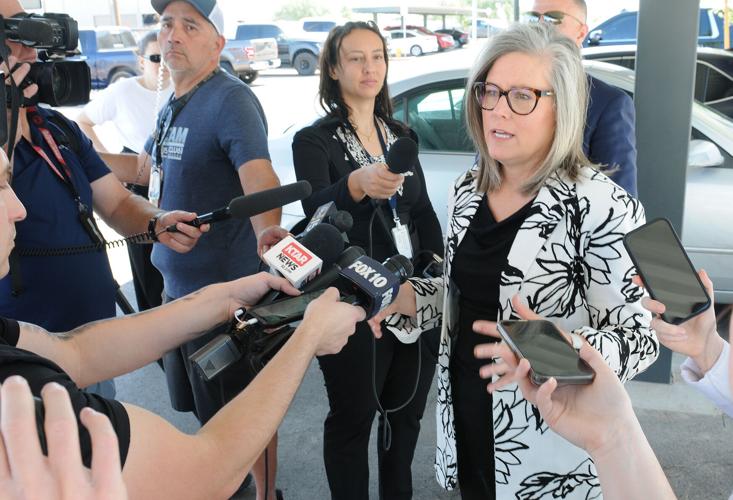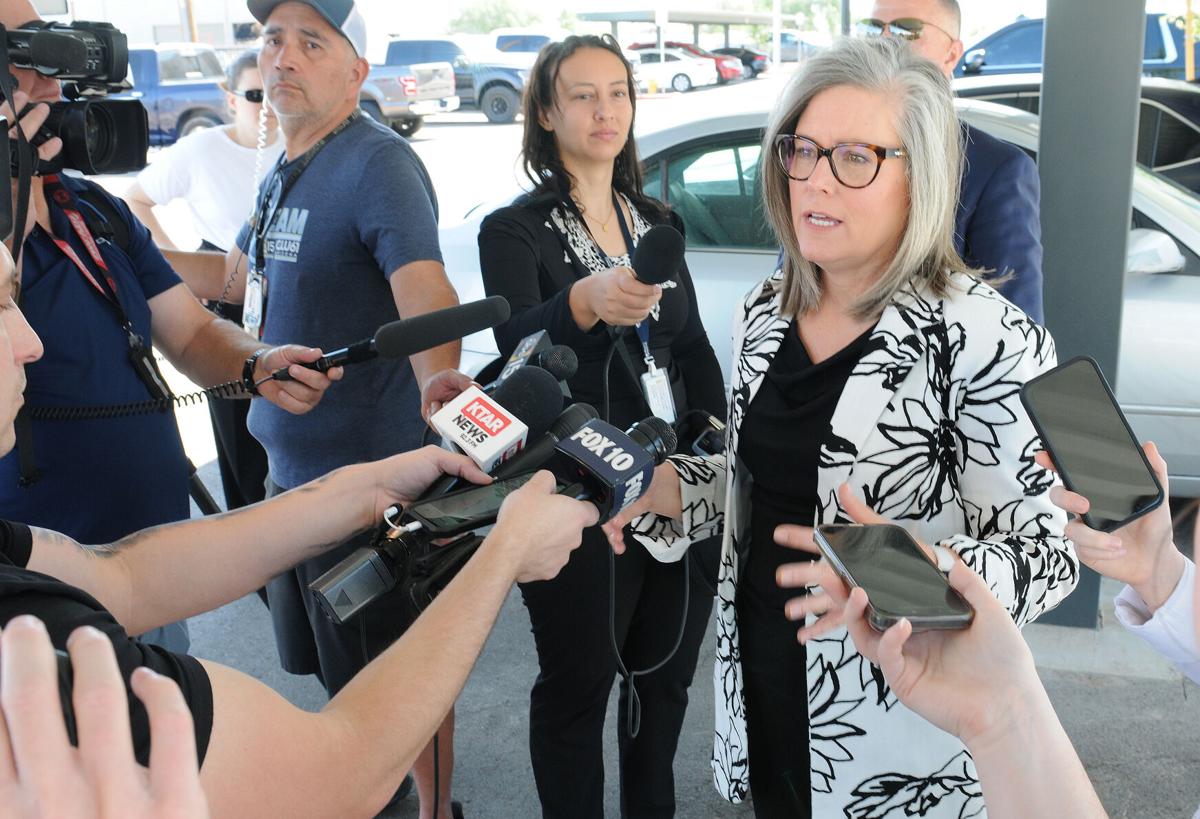As the law stands in Arizona, there’s nothing preventing your neighborhood from filling up with short-term rentals and becoming an Airbnb ghetto.
Investors can buy up properties in high-demand areas, paint them in neutral colors, stock them with sterile furniture, and make money — as long as there are customers.
In Tucson, residents around the university and south of downtown have seen these Airbnbs proliferate, occupying more and more homes that used to be long-term rentals. In Sedona, short-term rentals take up more than 16% of the housing stock and have helped create a housing shortage so severe that the city opened a parking lot this year for people living in their cars.
But in Arizona, there’s been nothing we could do about it for years, thanks to a sweeping 2016 state law that pre-empts cities from any significant regulation of short-term rentals.
Eight years later, there’s still nothing we can do about it, because Gov. Katie Hobbs decided not to prioritize the issue this session or use her leverage to win changes.
As a result, the free market remains in charge. This isn’t nothing: The explosive growth in short-term rentals has leveled off in the Phoenix area and is slowing in Tucson.
But it’s not as much as we could do to reduce the negative effects Airbnbs are having in some areas, on livability and affordability. Around the country, cities in states that allow local regulation have been experimenting, from passing nuanced rules to imposing near bans, like the one in force in New York City.
Some of these regulations have shown promise for stopping the surging cost of housing. The tourist mecca of Palm Springs, California, for example, had seen massive growth in the number of short-term rentals over a period of years.
Then, in December 2022, the city passed an ordinance that capped the percentage of homes that could be used as short-term rentals. No more than 20% of the housing units in a given neighborhood could be on Airbnb or its fellow platforms, like Booking and VRBO.

Arizona Daily Star columnist Tim Steller
Guess what happened? In the year-plus after the regulations went into effect, housing prices in Palm Springs dropped, more than in its neighboring cities in California’s Coachella Valley.
This session could have been the time
As two controversial housing bills went to Gov. Hobbs’ desk last week, one of the biggest debates was about short-term rentals. Hobbs should veto one of the bills, some city and neighborhood leaders told her, because the bill encouraged more of them.
The “casita” bill, as this bill was known, forced all cities over 75,000 population to allow two accessory dwelling units, also known as casitas or guest houses, per single-family property. Tucson already permits one casita per residence.
Opponents argued that instead of encouraging more housing, the bill would just lead to a proliferation of casitas built to serve as short-term rentals. So, legislators struck a deal: For each new casita used as a short-term rental, the owner would have to live on the property.
“I’m really proud that this is the strongest protection around short-term rentals that we’ve passed in years,” Democratic Sen. Anna Hernandez, of Phoenix, told me.
She’s right, but this new law only affects yet-to-be-built guest houses used as short-term rentals. It does nothing about the houses, apartments and existing guest houses that are already being used that way.
For years, Republican and Democratic legislators have tried to revise the 2016 law that keeps cities from regulating short-term rentals, but so far, they’ve failed.
This session could have been the time. Negotiations have been ongoing over a variety of housing bills, with Democrats and Republicans both contributing on bills with bipartisan support and opposition. Hobbs, a Democrat, could have made her signing a housing bill contingent on softening the 2016 law.
But she didn’t do that. She signed the two housing bills last week, even while acknowledging problems persist with short-term rentals.
“Everywhere I go, communities across the state, when we talk about affordable housing, the short-term rental issue comes up, whether it’s the fact that out-of-state investors are coming in and buying up housing stock for short-term rentals,” Hobbs said in a written statement.
So what’s she doing about it? She told reporters Thursday, “We’re working on a plan.”
Hmm.
The free market holds sway
In the absence of local regulation, the free market has held sway. In the Tucson area, listings for short-term rentals went from a low of 2,773 in September 2022 to a high of 5,825 in April 2024, according to data from AirDNA, a firm that analyzes the short-term rental market, largely for owners of these properties.
But the growth of listings has been slowing, and occupancy has been declining. Some people are getting out of the market altogether.
“As the performance started to decline, the supply growth started to decline as well,” said Bram Gallagher, director of economics and forecasting for AirDNA.
Bear Bailey and Bree Richmond, who own STR Tucson, a short-term rental company, told me they’ve seen the market slowing and some people leaving the short-term rental business.
“There’s definitely been a saturation,” Bailey said. “That’s evidenced by the occupancy rate having gone down.”
But local limits on short-term rentals won’t be a solution to housing unaffordability on their own, they noted. Many of the properties they manage as short-term rentals are second homes that the owners stay in for a period every year.
Those houses wouldn’t be sold or rented long-term if the owners couldn’t put them on Airbnb. They’d just sit empty.
‘It’s getting thicker by the day’
The leveling off of the housing market doesn’t mean that some local regulations couldn’t be useful. While the broader market may naturally stop growing when supply meets demand, the concentration of short-term rentals in certain neighborhoods can continue to increase and degrade those local areas.
David Bachman-Williams, president of the Armory Park Neighborhood Association, told me Airbnbs keep multiplying in the neighborhood. He would be surprised, he said, if short-term rentals don’t make up 10% of the housing stock in Armory Park.
“It’s getting thicker by the day,” he said. “On my block, across the street is an Airbnb, at the other end, on the corner is another.” He just learned of a third being converted nearby.
Long-term renters are growing scarcer in the neighborhood, he said.
“Part of the strength of this neighborhood has always been there’s been a nice mix.” The proliferation of short-term rentals, he said, “moves us further into gentrification.”
Let cities explore innovation
What can be done?
Gallagher, of AirDNA, pointed to licensing requirements and bed taxes equal to those applied to hotels as basic local regulations that can be imposed without much negative impact on the short-term rental market.
Tucson doesn’t even have a permitting requirement, though local permits are allowed by the state’s short-term rental law. Oro Valley put a licensing system in place last year, as did Phoenix.
In Irvine, California, the city banned short-term rentals from residential areas, and that had a positive impact on long-term rents. Even Lorain, Ohio, has found the need to impose regulations.
The idea isn’t to kill off the Airbnbs. They’ve proven to be a good source of income for people and a valued source of lodging. I use them often when traveling.
The idea is to let Arizona cities explore ways to reduce the negative impacts of the proliferation of short-term rentals — to cut down on party houses and residential neighborhoods being turned into tourist zones.
I wish Hobbs had prioritized that now instead of promising, as she did Thursday, “You’ll hear more about that in the coming months.’’
Get your morning recap of today's local news and read the full stories here: tucne.ws/morning






